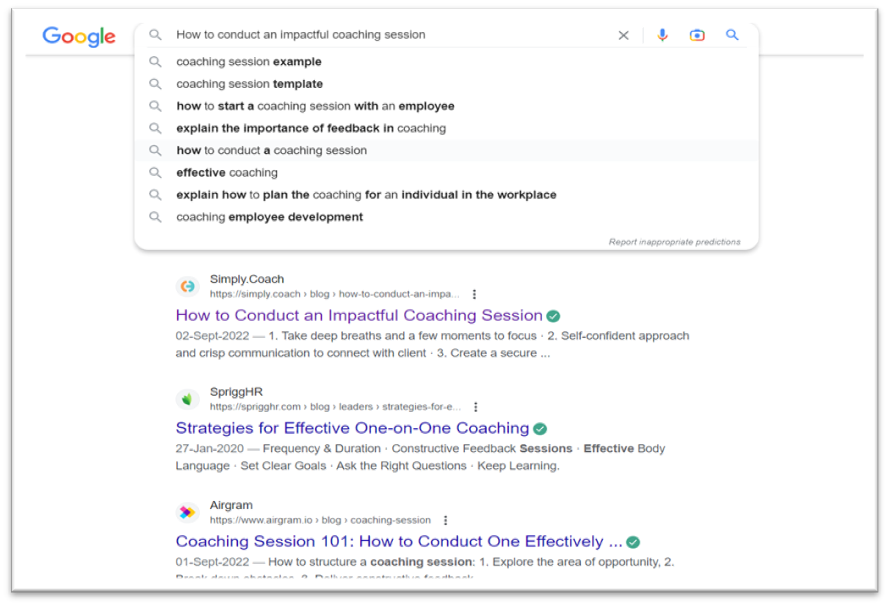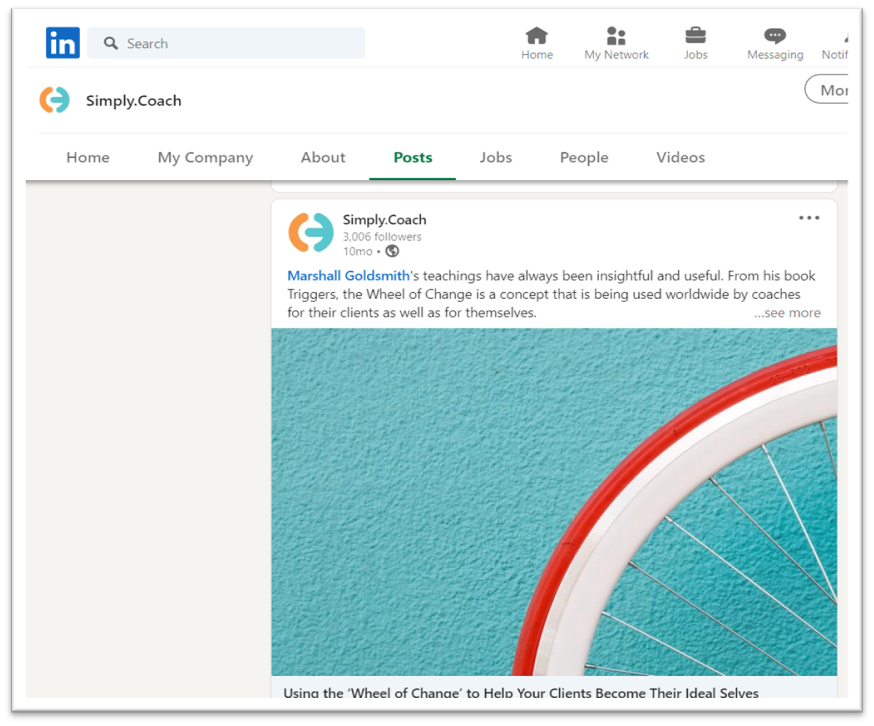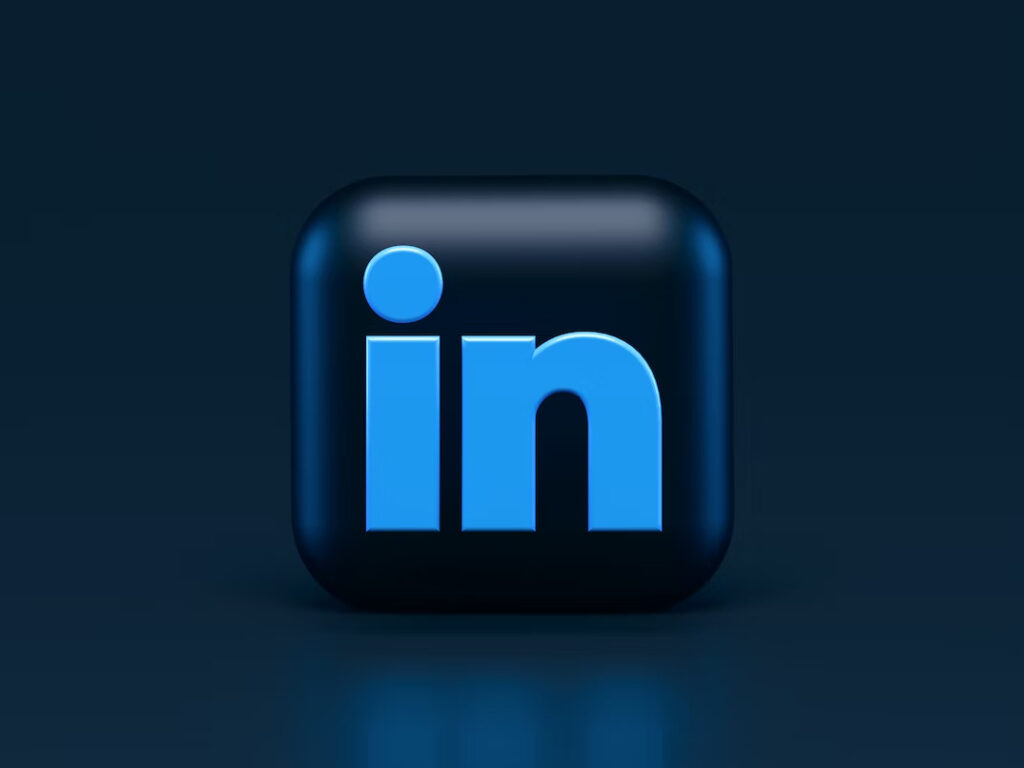No one is immune to the powers of content marketing – it’s everywhere; from social media posts to long articles to short videos and emails. Done well, it doesn’t seem like marketing at all.
But being on the receiving end is easier than being the creator, so if you think content marketing for coaches and mentors is an easy route to success, think again.
Everyday, with changing consumer preferences and digital landscapes, the guidelines for content marketing for coaches and mentors are changing as well. For example, if consumers prefer seeing content in the video format (as is the case now), it’s not just the big consumer brands that need to prioritize creating videos – as a coach and mentor, you need to create more videos too.
But fret not! Our blog post will take you through 8 sure-fire content marketing strategies for coaches and mentors that will help you bring in prospective clients with smart but minimal moves. Before that, let’s see how content marketing works.
How content marketing for coaches and mentors works
Content marketing for coaches and mentors is all about educating prospective customers and guiding them toward information about you, your credibility, offerings and services, etc. This is done by using content to guide clients through the marketing funnel.
A marketing funnel traces the journey of a client through different stages, and each stage calls for different content forms. Let’s see how content marketing for coaches and mentors works in each of these stages with the help of a basic marketing funnel:

Awareness: The top of the funnel is the stage where you create brand awareness among your potential clients – at this stage, you want to create content that will pique the interest of your ideal clients and show them that you have value to offer. The most effective content forms for this stage are infographics, blogs, “how-to” guides, videos, etc. It’s in this stage that you help prospects get familiar to your products, services, and brands through informative contents.
Consideration: The middle of the funnel is the stage where your prospects haven’t quite settled on whether they need/want your services or not. They are already familiar with your brand, but you have not won them over yet. In fact, they are possibly seeing content from other coaches/mentors just like you. are in a state of mind where they are considering whether they should go for your services or not. Case studies, details of your service, and content that highlights your unique approach to coaching/mentoring is helpful at this stage. On your website, you can offer lead magnets – free downloadable content in exchange for contact details.
Conversion: The bottom of the funnel is the stage where you nudge your prospects into converting into paid clients. This usually happens on your website, and it’s the stage at which you need to convince them that you are the coach or the mentor they need. Make sure you publish positive reviews from past clients, provide offers on coaching/mentoring packages, and create an email marketing list to which your past leads and clients are added.
8 sure-fire content marketing strategies for coaches and mentors
While some content marketing strategies hold true for decades, some change with changing times – you always need a mix of both. Here’s a lowdown content marketing strategies for coaches and mentors in 2024.
1: Identify the intent of your content
It’s very important to figure out what exactly you want to accomplish from your content—is it to boost brand awareness, generate more leads, or increase your revenue? Understanding the business goal and then the marketing goal behind your content will help keep you on the right track and also measure the success of your content correctly. Don’t forget to plan content based on who your audiences are, and across different stages of the marketing funnel.
2: Identify who your audiences are
Clients are at the core of every coaching and mentoring business. Identifying the right audience and addressing their paint points as precisely as possible are key to any successful content marketing effort. It’s only when you understand your potential clients inside out that you will be able to create content that hits home with them, establishes you as a thought leader and an expert in the genre, and convinces them to become your client.
Knowing your audience well also helps you weave content around their likes and interests. This comes handy in choosing the right channel/ social media platform for your audience. For instance, if your target audience falls somewhere between 20 to 30, they are most likely into short form content and chances are they will frequent Instagram, YouTube, etc. more than read long-form blog posts. Hence, creating short Instagram or YouTube reels will have more impact than anything else.
Are you wondering how to constantly generate content topics and ideas for your ideal audience?
Google can help you out. Once you type one topic into the Google search bar, it automatically generates multiple other related items that are frequently searched in your field of work. This helps you create content that can potentially grab more eyeballs.

3: Generate long-form blog posts
On Google, posts that are long and informative (say, around 1200-1500 words) can rank high if they bring value to readers. Basically, the search engine attaches a higher degree of importance to posts that are detailed and that carry useful information. Apart from length, other areas that search engines factor in include text-based posts and written posts supported by strong visual elements. Google understands that the more appealing and engaging a page is, the more it will lead to user-stickiness. In keeping with that, the more your audience engages with your blog post pages, the higher Google ranks them. However, one-off posts that tick all the boxes don’t make the cut – you must blog regularly for the search engine to recognize and value the pattern.
4: Repurpose existing content
Freshness carries a lot of importance on the web. The fresher the content is, the greater the chances are for it to appear higher in search results and to be consumed by your audience. However, you can’t add new content every day. That’s why it is a good idea to rehash and repurpose your existing content to create new buzz and drive traffic. Think remodeling a blog post into an infographic or bolstering your landing page with fresh content akin to new metrics, new examples, etc. Resharing old content on social media is yet another way to grab more eyeballs without wasting time, effort and webpage real estate to generate absolutely new content – but don’t forget to ensure that the old content is updated in context. The first step in such regenerating activities is a thorough audit of your existing pages and strategizing on the “what” and “how” of remodeling.
5: Generate social media stories and reels
Many coaches and mentors are at their wits’ end when it comes to effective social media marketing. Among a host of tactics for social media marketing for coaches and mentors, what usually works now is bite-sized, snackable posts. In short: stories or reels. These variants have grown into tremendous popularity of late and show no signs of slowing down. What works? Short texts, animation or visual components, great designs, prominent Calls-to-Action (CTAs), and user engagement among others. The power to draw attention and engage users usually works on social media.

However, when it comes to social media marketing for coaches and mentors, stories or reels can be of various kinds – it is seen that those that involve questions, surveys and giveaways tend to perform better than others. For example, beginning a story with a direct question like ‘What are the top 3 ways to…?’ is a sure-shot way to capture your audience’s attention. Similarly, having a giveaway at the end of your post can create interest and motivation for your audience to participate in the post. Last, but not least, setting aside a budget for promoting your posts will always help reach new audiences and widen your top stage of the funnel.
Wondering how to leverage LinkedIn for social media marketing?
Read our blog on “LinkedIn Marketing for Coaches 101” for some interesting tips & tricks!
6: Explore podcasting
Recent data shows that there are over 464.7 million podcasts listeners globally, which makes for 22% of the overall internet users. Hence, one can safely say that there’s been an upswing in the popularity of podcasts among people. This growing popularity could be a result of the fact that you can consume its content even on the go and whenever you wish to. By creating podcasts, you can reach out to a wider variety of audiences and engage them in a different way.
Here are a few tips that will help you make a mark with your podcast:
- Approach influencers and brands for collaborations
- Rehash existing and older content
- Create one episode at a time, and create it well
7: Go live on social media
The age of scheduled posts is steadily giving way to live streaming on social media. Live streaming has a lot of advantages in engaging your audience:
- It is real-time, thus fast and exciting
- It establishes direct connect between you and your audience
- It is natural and therefore, more trusted and credible
Be in on Facebook, YouTube, Instagram or Twitter, arm yourself with a webcam, a good microphone – or a capable smartphone – and start your live broadcast to create waves on social media. Pro-tip: Keep it short, crisp and informative to get the best engagement from your viewers.
8: Don’t drop the ball on email marketing
Email marketing is an oldie but goodie; the best way to keep your prospects engaged and informed and convert them into paying clients.
Think of email marketing as old school mail made more efficient – if someone used your services in the past, if someone has shown interest in you/your content and given you their email ID, you should keep them in the loop and try to get them to buy your services (or buy your services again, in the case of past clients). Email marketing is also a great way to run a referral campaign, i.e. to reach out to old clients and ask them to refer their colleagues/friends/family.
And while it sounds complicated and time-consuming, email marketing becomes much easier with the help of coaching management software. Online coaching management platforms like Simply.Coach offers integration with MailChimp, constant contact, etc. allowing you to schedule emails in advance and send them in bulk automatically.
Here are some email marketing tips and tricks for you:
- Keep your subject line short, most people will read them on mobile
- Keep your emails crisp and to-the-point
- Incorporate images to increase engagement
- Always include a clear CTA, even if it’s an email saying hello – give receivers a way to engage back with you
- Stay topical with user testimonials, news updates, etc. wherever relevant
The bottomline
Content marketing has tremendous impact on your ROI. It is a highly valuable marketing strategy that can reap brilliant rewards. The starting point, however, is to connect your content marketing strategy to your marketing and business goals, map out your audience and – while running the strategy – constantly measure your results to derive insights and optimize. With proper planning and effective execution, you can surely rope in your target audience and keep them coming back for more.
Sources: Together, Thinkific, Stephanie Fiteni, CareerFoundry
FAQs
1. What are the effective ways of marketing a mentoring program/business?
The success of any mentoring program is highly dependent on its promotional strategies. Here’re a few effective ways of marketing your mentoring program and increase sign-ups:
- Come up with captivating email and LinkedIn announcements
- Get leaders and influencers in your network to promote the program
- Share success stories of past mentees
- Answer as many queries on the program as possible on the landing page itself
2. How to grow your coaching business through organic content marketing for health and other coaches?
Organic marketing is the most basic form of promoting your services to your prospects when marketing for health and other coaches. Some of the ways you can grow your coaching business leveraging organic marketing strategies are:
- Creating and sharing content that addresses the pain points of your potential clients
- Make optimum use of social media platforms like Instagram, Twitter, Facebook, YouTube, etc. Use as many suitable hashtags as possible to help prospects trace you easily
- Establish your image as a thought leader through podcasting
- Keep your audiences up to speed with your new services/packages and offers
- Be an active participant in relevant online communities
About Simply.Coach
Simply.Coach is an enterprise-grade coaching software designed to be used by individual coaches and coaching businesses. Trusted by ICF-accredited and EMCC-credentialed coaches worldwide, Simply.Coach is on a mission to elevate the experience and process of coaching with technology-led tools and solutions.

Content Specialist @Simply.Coach
Jayashree Mukherjee is a content specialist by day and a content junkie (on OTT) by night. Passionate about traveling, street food and overturning the underuse of em dashes — she would have been a globe-trotter if she hadn’t been so lazy.









